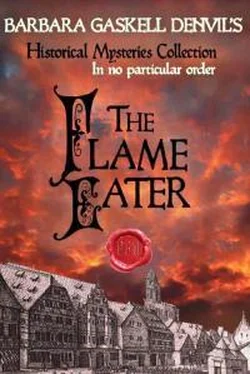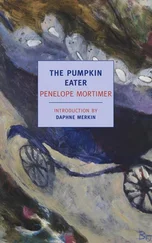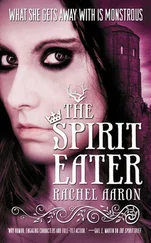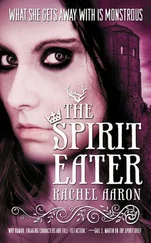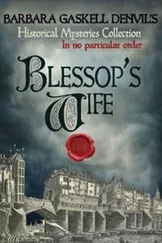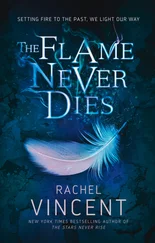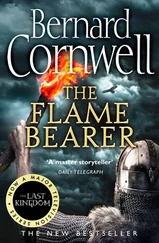He leaned down quickly and kissed her hard as though drinking, as though desperate with thirst. She kissed him in return, reaching up to taste his tongue and his breath.
The setting sun slipped unnoticed behind the long crenellated towers. Stabbing ruby and topaz blurred and sank. The long twilight was settling. The frogs still called as the ducks and the forest creatures nosed into their nests, tree holes and burrows, safe for the night. Darkness swept in from the north. A thin pearlised slice of moon peeped.
Nicholas and Emeline saw none of it nor heard the soft hooting of a hunting owl. They remained within each other’s arms, tucked oblivious to the other world, knowing only each other as they neared their own climax.

The curve of the young man’s thigh skimmed the platters, spoons and napkins still neatly tidy, still ordered, awaiting his lordship’s appetite.
Only one toppled candle, not yet congealed, lay out of place. The pale melting wax had oozed into one thin stalactite pointing towards the shadowed boards below. The great table, set for a late supper not yet served, otherwise remained undisturbed for the attack had caused little disarray and no sound. His lordship, placid in his comfortable stupor, had felt nothing but the deepening of sweet sleep.
Yet now the lord of the Strand House, to which he had returned on leaving court for the day, lay silent upon his back, his corpulence in unashamed evidence as the velvet belly proudly rose, the codpiece, a smaller protuberance beneath, now a little askew, and then lay the muscular stretch of the legs, thighs spread apart upon the floorboards, shoes pointing to the small dancing flames of the lit chandelier above.
The Earl of Chatwyn’s heavily jowled face appeared peaceful, but the hole in his throat was ragged and the subsequent bleeding had pumped across his doublet even to the padded shoulders before hardening and turning stiff and black.
David Witton replaced the much stained carving knife on the tablecloth, stood and looked around. It was time to set the cleansing fire, but he was momentarily reluctant.
The house had long belonged to the Chatwyn family; often repaired, enlarged and consistently adored throughout the generations. Lord Nicholas Chatwyn, now the earl although he could not yet know it, loved this house. David would not willingly do what might sadden his master. Every action, every studied detail, every killing and every blazing furnace had been designed only to help his master, and for no other reason. Now Nicholas would no longer be shamed or insulted by his great pig of a father, and could inherit the title he deserved. But he would be sorry to lose this grand house.
Mister Witton sat a moment, gazing down with pride at the destruction of the man who had so often caused Nicholas pain. First in his service when Nicholas the boy was little more than sixteen, David had witnessed bitter years of turmoil and spite, wilful misunderstanding, unjust punishments and the harsh rejection of any affection or warmth. David had considered killing the foul old man many years ago, but had decided to wait. Protecting his master by killing that master’s father was not an easy decision. Now setting the fire was an even more challenging choice.
But the stars were singing. Beyond the tall glass window and its gleaming diamond reflections, a hundred spilling stars shone their music across the paths and hedges below, even down to the glittering water’s edge. There could be no mistake.
At first, followed by long months of doubt and self-loathing, David had thought setting the flames to the castle hall had been a mistake of disastrous misunderstanding. At the time his master’s enforced marriage to Peter’s mistress, a woman of stubborn ignorance who had been taught to loathe her new husband, was a wretched business which David had believed he must end as quickly as he might. Finishing the union in fire and death had been the direct order from above. Then it had somehow proved wrong. For it was Nicholas who had suffered, rushing to save, to extinguish and restore, declaring himself the hero he surely always had been, but near dead from the flames. Not only, but now, with the marriage proved a success, it was hard to see why the order from the singing stars had been sent at all.
Yet David thought he understood. It was that very disaster which had burned away the hatred and ignited the love. The blossoming happiness of his master’s marriage was, David decided, the direct result of the initial misery.
The wife, who had initially arrived at the castle in sin and immorality, had been cleansed also by fire. David had found her alone in the lord’s bedchamber, bathed in soot and sleeping in ashes. He had caressed her, and even, he admitted, desired her, seeing her that way. He was aroused by her acceptance of the flaming destruction, and her own wickedness thus washed clean in embers. By wallowing in ash, she had acknowledged the filth of her past, and so was saved. And it was the stars, the fire and David which had saved her.
And so, one by one, by such acts of salvation never noticed and never seen by others, David Witton had continued to destroy any creature or cause which threatened his master. The flames that destroyed the village eaten by pestilence, where the guard had dared to threaten. The hypocritical father-in-law who had disrespected a man he should have felt overwhelmingly honoured to welcome into his own paltry family. The old witch who had murdered the unborn Chatwyn infant, and who, if left alive, might have stood witness against the family. Immorality, impropriety, and deliberate wickedness against the preaching of Holy Church. One of the most important, of course, was the eradication of the vile brother and his whore. And there had naturally been others. A valet caught stealing. A villager spreading gossip and rumour.
The stars were never wrong.
And there must always be fire, for fire cleansed. Fire had killed his own father, another brute without love, who had worked in the woods beyond London, felling trees for the charcoal furnaces and the casting of the cannon. David had been fourteen, still nursing the bruises his father gave him each evening, when one day the whole forest burned and his father with it. His mother, sodden in drink as always, claimed she had lit the fire, though David doubted it. It had surely been the stars, knowing best as always.
Then the year afterwards he had watched her burn when she tumbled cupshotten onto the hearth. The woman had screamed and disturbed the neighbours, but it had seemed a reasonable justice. And it had given David his freedom. Shortly afterwards, tramping north, he had found Chatwyn Castle and the master he loved.
So he took the spill he had folded ready, held it to the remaining candle flame, and then lowered it to the earl’s flabby oozing carcase. The old man’s hair was a frizzled grey but it turned dark, singed into carmine prickles. Springing into tiny dancing flamelettes, each with a perfect golden heart, while the sagging degenerate features turned to melting lard.
But the fire did not immediately spread, and the household would quickly smell the danger and rush to stamp out and douse the burning body. The house might yet be saved, even while the flames obeyed their destiny and the cleansing was achieved.
He hoped the threatened invasion from France would come indeed. His master, too badly wounded to join any battle, would be safe. But David, in his master’s place, would have one more opportunity to prove his worth.
Backing slowly from the chamber, David turned to the door, did not look back, and strode from the house. On the morrow he would journey north again and back to Chatwyn Castle. He would take the news with him, of his master’s newly inherited rank and rise to the family title; Earl of Chatwyn.
Читать дальше
